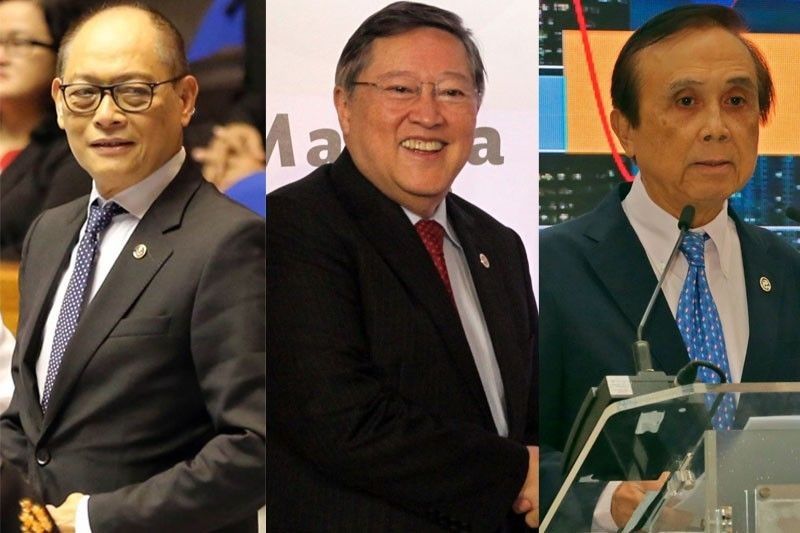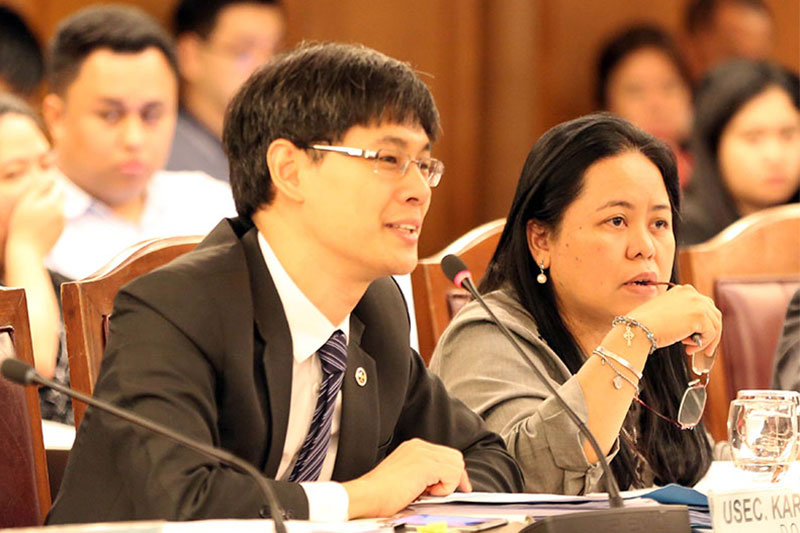Groupthink to test effectiveness of Duterte's new economic team

MANILA, Philippines — When the Department of Agrarian Reform proposed a ban on farmland conversion for two years in 2017, Vice President Leni Robredo and the economic managers submitted a letter to President Duterte to oppose the plan. The moratorium did not push through.
It was one of few moments when Duterte’s economic team acted as a check to Duterte, and others in the Cabinet, over policies they think would not the benefit the economy and the public. Not all their decisions were popular, but Finance Secretary Carlos Dominguez III, then Budget Secretary Benjamin Diokno and recently resigned Socioeconomic Planning chief Ernesto Pernia were seen by businesses as crucial individuals holding the government’s economic fort together.
“Our relationship as a whole was very supportive. The economic managers have been quite transparent with us and we achieved some minor and major wins,” said George Barcelon, president emeritus at the Philippine Chamber of Commerce and Industry, who also served as the group’s president from 2016 to 2018.
Policy disagreements are typical in any group but these are rather kept under wraps most of the time especially in the government. Under the Duterte administration, economic officials butted heads with other Cabinet members, but one thing they made sure was they did it as one team, a strategy that worked most of the time in tilting many of Duterte’s policy U-turns.
But cracks became obvious last Friday and the discord apparently came to a boiling point prompting Pernia to step down from the National Economic and Development Authority (NEDA). In an interview with ANC on Monday, Pernia hinted on disagreements with Dominguez, the head of the economic team who recommended him to the post.
The result was a quick succession that saw Dominguez’s protégé, Finance Undersecretary Karl Kendrick Chua, heading the NEDA, a situation Pernia welcomed with caution. “He is an able economist. I just hope he keeps an independent mind,” Pernia said.
‘Like-minded individuals’
Indeed, Pernia has quite a record of going against the Duterte government’s narrative during his nearly four years in office. In 2017, while Dominguez was calling for a careful study of Duterte’s push for a federal system of government, Pernia went categorical and said a shift in government system would “wreak havoc” on the economy. Duterte eventually dropped his federalism bid last year.
Just before the coronavirus outbreak disrupted the entire nation, Pernia also said that a non-renewal of ABS-CBN Corp.’s franchise, a direct result of Duterte’s misgivings to the network, would have an “adverse impact” on investor sentiment.
Not all battles were won. When Duterte rejected loans from the European Union in 2017 because the economic bloc was critical of his drugs war, Pernia was quick to clarify that the rejection does not form part of government policy. In 2019, that all changed in another instance, when the Office of the President told officials to reject aid from signatories of a UN human rights resolution that called for probe of the drugs war. The prohibition was lifted last March.
“In meetings, I do not always agree with everybody. There are times that I disagree, or I have other opinions and I’m used to not always saying yes,” Pernia said on ANC.

Ronald Mendoza, dean of Ateneo School of Government, said securing diverse views is a healthy exercise in policymaking and prevents groupthink, which in theory happens when a group calls the shots based merely on common grounds, rejecting alternate views to avoid conflict.
“In normal public policymaking— but more so in a crisis situation— it is imperative to weigh all possible scenarios and viewpoints and even opposing ones. That in fact is healthy,” Mendoza said in an online exchange.
Such is the fear now with Chua leading NEDA, fresh from his stint at the finance portfolio where he was brought in by Dominguez in 2016 to lead the overhaul of the tax system. This history between Dominguez and Chua has drawn anxiety that it will be difficult for the new NEDA chief to go against his former boss. “Well, in a way, it was a signal that the head of the economic team was going in another direction. Maybe there would be less debate with Karl Chua,” Pernia said.
Dennis Coronacion, chair of the political science department at the University of Santo Tomas, said reaching an easy consensus among “like-minded individuals” may not entirely be a good thing. “Since there will be no one as brave as him (Pernia) to show the group what’s wrong with their decision, there is always the possibility that they will come up with half-baked policies and programs,” Coronacion told Philstar.com.
This already happened. In 2018, economic managers, including Pernia, pressed Congress to legislate the rice liberalization law despite fears it would put local farmers who cannot compete with rice imports at a disadvantage. The result was a massive drop in palay prices, pushing down farmer earnings.
Not a first
Chua’s entry to the Cabinet was not the first time the Duterte government was accused of fueling groupthink. Shortly before taking over in 2016, a nearly all-men Cabinet drew flak from an eager public waiting for what Salvador Panelo characterized as the “best and the brightest” individuals to form the president’s official family.
To date, a few women like Tourism Secretary Bernadette Romulo-Puyat and education chief Leonor Briones are holding key government posts.
Mendoza said the government should welcome dissent in crafting policies. “If government decision-making does not enjoy strong trust, then that will be exacerbated by efforts to stifle opposing views. It will invite even more critique…, not less,” he said.
“Working with one purpose is different from working with one mind. It is always possible to work with one purpose, with strong trust, integrity and accountability in the process,” Mendoza said.
- Latest
- Trending





























